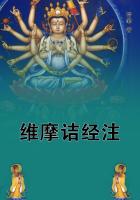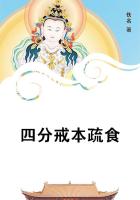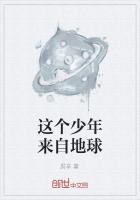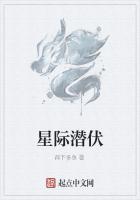Aeterna aeternus tribuit, mortalia confert Mortalis; divina Deus, peritura caducus.
"Aurel.Prud.contra Symmachum," lib.ii.
(The Eternal gives eternal things, the Mortal gathers mortal things: God, that which is divine, and the perishable that which is perishable.)EXTRACTS FROM THE LETTERS OF ZANONI TO MEJNOUR.
Letter 1.
Thou hast not informed me of the progress of thy pupil; and Ifear that so differently does circumstance shape the minds of the generations to which we are descended, from the intense and earnest children of the earlier world, that even thy most careful and elaborate guidance would fail, with loftier and purer natures than that of the neophyte thou hast admitted within thy gates.
Even that third state of being, which the Indian sage (The Brahmins, speaking of Brahm, say, "To the Omniscient the three modes of being--sleep, waking, and trance--are not;" distinctly recognising trance as a third and coequal condition of being.)rightly recognises as being between the sleep and the waking, and describes imperfectly by the name of TRANCE, is unknown to the children of the Northern world; and few but would recoil to indulge it, regarding its peopled calm as maya and delusion of the mind.Instead of ripening and culturing that airy soil, from which Nature, duly known, can evoke fruits so rich and flowers so fair, they strive but to exclude it from their gaze; they esteem that struggle of the intellect from men's narrow world to the spirit's infinite home, as a disease which the leech must extirpate with pharmacy and drugs, and know not even that it is from this condition of their being, in its most imperfect and infant form, that poetry, music, art--all that belong to an Idea of Beauty to which neither SLEEPING nor WAKING can furnish archetype and actual semblance--take their immortal birth.When we, O Mejnour in the far time, were ourselves the neophytes and aspirants, we were of a class to which the actual world was shut and barred.Our forefathers had no object in life but knowledge.
From the cradle we were predestined and reared to wisdom as to a priesthood.We commenced research where modern Conjecture closes its faithless wings.And with us, those were common elements of science which the sages of to-day disdain as wild chimeras, or despair of as unfathomable mysteries.Even the fundamental principles, the large yet ****** theories of electricity and magnetism, rest obscure and dim in the disputes of their blinded schools; yet, even in our youth, how few ever attained to the first circle of the brotherhood, and, after wearily enjoying the sublime privileges they sought, they voluntarily abandoned the light of the sun, and sunk, without effort, to the grave, like pilgrims in a trackless desert, overawed by the stillness of their solitude, and appalled by the absence of a goal.Thou, in whom nothing seems to live BUT THE DESIRE TO KNOW; thou, who, indifferent whether it leads to weal or to woe, lendest thyself to all who would tread the path of mysterious science, a human book, insensate to the precepts it enounces,--thou hast ever sought, and often made additions to our number.But to these have only been vouchsafed partial secrets; vanity and passion unfitted them for the rest; and now, without other interest than that of an experiment in science, without love, and without pity, thou exposest this new soul to the hazards of the tremendous ordeal! Thou thinkest that a zeal so inquisitive, a courage so absolute and dauntless, may suffice to conquer, where austerer intellect and purer virtue have so often failed.Thou thinkest, too, that the germ of art that lies in the painter's mind, as it comprehends in itself the entire embryo of power and beauty, may be expanded into the stately flower of the Golden Science.It is a new experiment to thee.Be gentle with thy neophyte, and if his nature disappoint thee in the first stages of the process, dismiss him back to the Real while it is yet time to enjoy the brief and outward life which dwells in the senses, and closes with the tomb.And as I thus admonish thee, O Mejnour, wilt thou smile at my inconsistent hopes? I, who have so invariably refused to initiate others into our mysteries,--I begin at last to comprehend why the great law, which binds man to his kind, even when seeking most to set himself aloof from their condition, has made thy cold and bloodless science the link between thyself and thy race; why, THOU has sought converts and pupils; why, in seeing life after life voluntarily dropping from our starry order, thou still aspirest to renew the vanished, and repair the lost; why, amidst thy calculations, restless and unceasing as the wheels of Nature herself, thou recoilest from the THOUGHT TO BEALONE! So with myself; at last I, too, seek a convert, an equal,--I, too, shudder to be alone! What thou hast warned me of has come to pass.Love reduces all things to itself.Either must I be drawn down to the nature of the beloved, or hers must be lifted to my own.As whatever belongs to true Art has always necessarily had attraction for US, whose very being is in the ideal whence Art descends, so in this fair creature I have learned, at last, the secret that bound me to her at the first glance.The daughter of music,--music, passing into her being, became poetry.It was not the stage that attracted her, with its hollow falsehoods; it was the land in her own fancy which the stage seemed to centre and represent.There the poetry found a voice,--there it struggled into imperfect shape; and then (that land insufficient for it) it fell back upon itself.It coloured her thoughts, it suffused her soul; it asked not words, it created not things; it gave birth but to emotions, and lavished itself on dreams.At last came love; and there, as a river into the sea, it poured its restless waves, to become mute and deep and still,--the everlasting mirror of the heavens.


